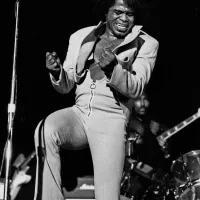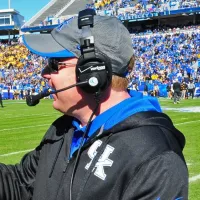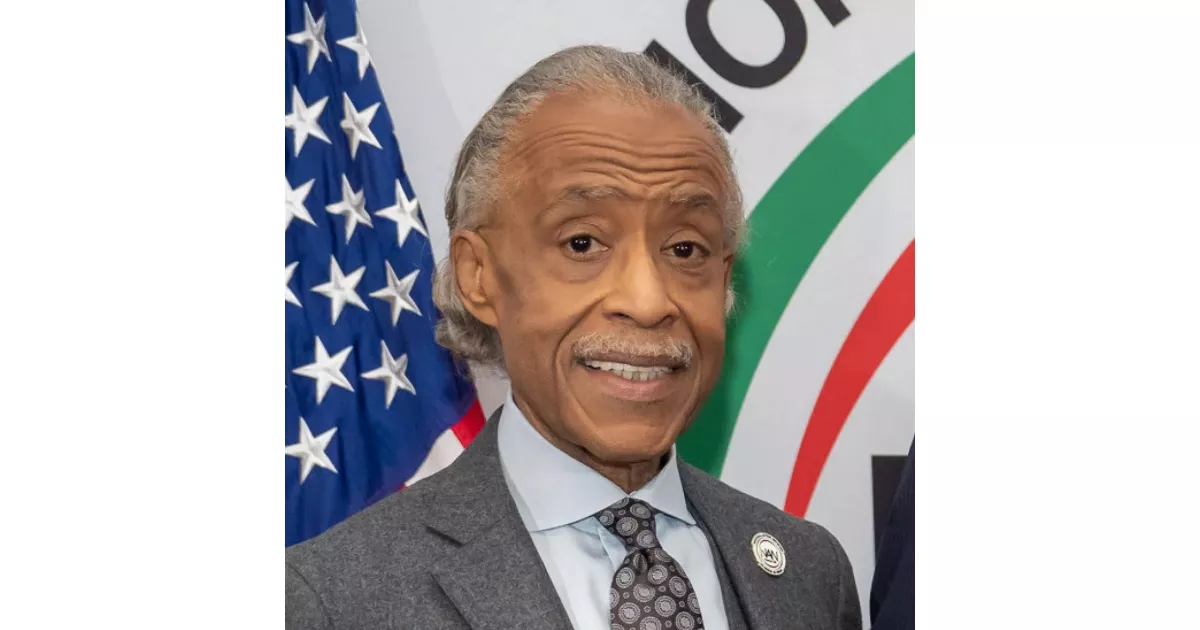Al Sharpton is a prominent American civil rights and social justice activist, Baptist minister, radio talk show host, and TV personality. He founded the National Action Network, a leading civil rights organization. Sharpton ran for the Democratic presidential nomination in 2004. He currently hosts the nationally syndicated radio show 'Keepin' It Real' and is a political analyst and weekend host for MSNBC's 'PoliticsNation,' solidifying his presence as a key voice in American political and social discourse.
October 3, 1954: Alfred Sharpton Jr. Born
On October 3, 1954, Alfred Charles Sharpton Jr. was born. He would later become a civil rights and social justice activist, Baptist minister, radio talk show host, and TV personality, as well as the founder of the National Action Network civil rights organization.
1963: Family Relocation to Brownsville
In 1963, Sharpton's father left his wife, leading the family to move from middle-class Hollis, Queens, to public housing projects in Brownsville, Brooklyn, due to financial constraints.
1969: Youth Director of Operation Breadbasket
In 1969, Jesse Jackson appointed Al Sharpton as the youth director of the New York City branch of Operation Breadbasket, which focused on improving job opportunities for African Americans.
1971: Founded National Youth Movement
In 1971, Al Sharpton founded the National Youth Movement to provide resources for impoverished youth.
1971: Meeting Kathy Jordan
In 1971, Al Sharpton met Kathy Jordan, who was a backing singer for James Brown, while touring with the artist.
1972: Youth Director for Shirley Chisholm Campaign
In 1972, Al Sharpton accepted the position of youth director for Congresswoman Shirley Chisholm's presidential campaign.
1973: James Brown's Tour Manager
In 1973, Al Sharpton started working as James Brown's tour manager.
1975: Dropping Out of Brooklyn College
In 1975, Al Sharpton dropped out of Brooklyn College after attending for two years.
1980: End of Tour Management with James Brown
In 1980, Al Sharpton's tenure as James Brown's tour manager came to an end.
1983: Sharpton Becomes FBI Informant
In 1983, Al Sharpton became an FBI informant following his involvement in a drug sting operation. He contributed to the indictments of several underworld figures.
December 22, 1984: Protests Against Goetz Acquittal
On December 22, 1984, Bernhard Goetz shot four African-American men on a New York City Subway. Al Sharpton led marches protesting the outcome of the trial in the Goetz case, where he was acquitted of most charges.
December 20, 1986: Howard Beach Assault
On December 20, 1986, three African-American men were assaulted in Howard Beach, Queens, leading to the death of Michael Griffith after being struck by a passing vehicle. This event spurred protests.
November 28, 1987: Tawana Brawley Incident
On November 28, 1987, Tawana Brawley was found with slurs written on her body and claimed she had been assaulted by six white men, some of them police officers.
1987: Tawana Brawley Case Involvement
In 1987, Al Sharpton was actively involved in publicizing the Tawana Brawley rape allegations in the media, which were later proven to be false.
1988: Run for Senate
In 1988, Al Sharpton ran for a United States Senate seat from New York.
1988: Sharpton's Informant Role
In 1988, Sharpton acknowledged that he informed for the government to combat crack cocaine in Black neighborhoods, denying that he informed on civil rights leaders.
1988: Altercation on The Morton Downey Jr. Show
In 1988, during an appearance on The Morton Downey Jr. Show, Al Sharpton and Congress of Racial Equality National Chairman Roy Innis had a heated argument about the Tawana Brawley case, resulting in Innis shoving Sharpton to the floor.
August 23, 1989: Bensonhurst Attack and Death of Yusef Hawkins
On August 23, 1989, Yusef Hawkins, a 16-year-old African-American teenager, was shot and killed in Bensonhurst. Al Sharpton was involved in protests against this act of racial violence.
May 1990: Led Protest in Bensonhurst
In May 1990, Al Sharpton led a protest through Bensonhurst after one of the leaders of the mob involved in Yusef Hawkins' death was acquitted of the most serious charges.
January 12, 1991: Stabbing Attempt on Sharpton
On January 12, 1991, neighborhood resident Michael Riccardi tried to kill Al Sharpton by stabbing him in the chest before a demonstration in Bensonhurst. Sharpton recovered from his wounds.
January 1991: Planned Another March in Bensonhurst
In January 1991, Al Sharpton planned another march for January 12, 1991 in Bensonhurst, following light sentences given to other members of the gang involved in Yusef Hawkins' death.
August 19, 1991: Start of Crown Heights Riot
On August 19, 1991, the Crown Heights riot began after a car accident led to the death of Gavin Cato. The riot involved looting, violence, and clashes between black and Jewish residents, as well as the stabbing of Yankel Rosenbaum.
1991: Founded National Action Network
In 1991, Al Sharpton founded the National Action Network (NAN), an organization focused on voter education, poverty services, and supporting small community businesses.
1992: Run for Senate
In 1992, Al Sharpton ran for a United States Senate seat from New York.
1992: Riccardi's Conviction
In 1992, Riccardi was convicted of first-degree assault, and Al Sharpton asked the judge for leniency during sentencing.
1992: Sharpton Derides Moderate Black Politicians
In 1992, Sharpton used derogatory terms to criticize moderate Black politicians aligned with the Democratic Party, referring to them as "cocktail sip Negroes" or "yellow niggers."
1993: Sharpton Pleads Guilty to Tax Evasion
In 1993, Sharpton pleaded guilty to a misdemeanor for failing to file a state income tax return. Authorities later discovered that his company, Raw Talent, was also not paying taxes.
February 13, 1994: Sharpton's Controversial Remarks at Kean University
On February 13, 1994, at Kean University, Sharpton made controversial statements, asserting Black people built empires while White people were in caves. He also used derogatory terms and criticized those proud of Mayflower ancestry. Sharpton defended his remarks at the time, though he later stated he no longer uses some of the terms.
1994: Run for Senate
In 1994, Al Sharpton ran for a United States Senate seat from New York.
1994: Re-baptism as Baptist
In 1994, Al Sharpton was re-baptized as a member of the Bethany Baptist Church by the Reverend William Augustus Jones, becoming a Baptist minister.
December 8, 1995: Freddie's Fashion Mart Shooting
On December 8, 1995, Roland J. Smith Jr., a protester, attacked Freddie's Fashion Mart, shooting customers and setting the store on fire, resulting in multiple deaths and his own suicide.
1995: Freddie's Fashion Mart Protest
In 1995, Al Sharpton led a protest against the planned eviction of The Record Shack, a black-owned record store, by Freddie's Fashion Mart. Sharpton's rhetoric during the protest was later criticized.
1997: Run for Mayor of New York City
In 1997, Al Sharpton ran for Mayor of New York City.
December 1998: Tyisha Miller's Death
In December 1998, Tyisha Miller, a 19-year-old African-American woman, was fatally shot by police officers in Riverside, California, prompting protests led by Al Sharpton in May 1999.
May 1999: Tyisha Miller Protests and Arrest
In May 1999, Al Sharpton, along with Jesse Jackson, protested the fatal police shooting of Tyisha Miller in Riverside, California. Sharpton was arrested during these protests, which blocked traffic on SR 91.
1999: Appearance in Documentary
In 1999, Al Sharpton appeared in a documentary about black nationalism hosted by Louis Theroux, as part of the "Weird Weekends" series.
1999: Amadou Diallo Protests
In 1999, Al Sharpton led protests to raise awareness about the death of Amadou Diallo, an immigrant from Guinea, who was shot dead by NYPD officers.
1999: Comparison to Amadou Diallo Killing
The Sean Bell shooting on November 25, 2006 drew comparisons to the 1999 killing of Amadou Diallo due to the involvement of NYPD officers and subsequent protests.
January 8, 2001: Riccardi's Release
On January 8, 2001, Riccardi was released on parole after serving ten years in prison for first-degree assault, after Al Sharpton asked the judge for leniency.
May 25, 2001: Imprisonment at Metropolitan Detention Center
On May 25, 2001, Al Sharpton was imprisoned at Metropolitan Detention Center, Brooklyn after being held in a Puerto Rican lockup for two days.
August 17, 2001: Release from Metropolitan Detention Center
On August 17, 2001, Al Sharpton was released from Metropolitan Detention Center after serving 90 days for trespassing charges.
2002: Regret over 'White Interloper' Remark
In 2002, Al Sharpton expressed regret for making the racial remark "white interloper" during the Freddie's Fashion Mart protest in 1995, but denied responsibility for the subsequent violence.
2002: Ousmane Zongo Protests
In 2002, Al Sharpton was involved in protests following the death of Ousmane Zongo, an unarmed West African immigrant who was shot by an undercover police officer in Manhattan. He met with the family and provided legal services.
2002: HBO Airs FBI Sting Video of Sharpton
In 2002, HBO's Real Sports with Bryant Gumbel broadcast a 19-year-old FBI videotape showing Al Sharpton in an undercover sting operation. Sharpton was shown with an FBI agent posing as a drug lord, where the agent offered Sharpton a commission for arranging drug sales, though no deal was ever made and Sharpton faced no charges.
December 2003: Settlement with New York City
In December 2003, Al Sharpton reached a $200,000 settlement with New York City after filing suit alleging the police failed to protect him from his attacker. The settlement occurred just as jury selection was about to begin.
2004: Presidential Campaign
In 2004, Al Sharpton participated in a presidential campaign.
2004: Candidacy for U.S. Presidential Election
In 2004, Al Sharpton was a candidate for the Democratic nomination for the U.S. presidential election.
2004: Sharpton Supports Gay Rights During Presidential Campaign
In 2004, during his presidential campaign, Al Sharpton expressed support for equal rights for gays and lesbians and same-sex marriage. He stated that it was insulting to even be asked about gay marriage, comparing it to asking if he supports black marriage or white marriage, implying that gays are equally human. Sharpton also began leading a movement to eliminate homophobia within the Black church.
January 1, 2005: Campaign Debts
As of January 1, 2005, Al Sharpton's campaign had debts of $479,050 and owed Sharpton himself $145,146 for "Fundraising Letter Preparation — Kinko's".
June 2005: Contract with Matrix Media
In June 2005, Al Sharpton signed a contract with Matrix Media to produce and host a live two-hour daily talk program, but it never aired.
November 2005: Contract with Radio One
In November 2005, Al Sharpton signed with Radio One to host a daily national talk radio program.
December 15, 2005: Agreement to Repay Public Funds
On December 15, 2005, Al Sharpton agreed to repay $100,000 in public funds he received from the federal government for his 2004 presidential campaign due to exceeding federal limits on personal expenditures.
2005: Appearance at the Tony Awards
During the 2005 Tony Awards, Al Sharpton appeared in a number put on by the cast of The 25th Annual Putnam County Spelling Bee.
2005: Fernando Ferrer Campaign Appearance
In 2005, Al Sharpton appeared in television ads for the Fernando Ferrer campaign for the New York City mayoral election.
January 30, 2006: Debut of Keepin It Real with Al Sharpton
On January 30, 2006, Al Sharpton's daily national talk radio program, Keepin It Real with Al Sharpton, began airing on Radio One.
November 25, 2006: Sean Bell Shooting
On November 25, 2006, Sean Bell was fatally shot by plainclothes detectives in Queens, New York, sparking public criticism of the police and drawing comparisons to the 1999 killing of Amadou Diallo.
February 2007: Discovery of Ancestry
In February 2007, genealogist Megan Smolenyak discovered that Al Sharpton's great-grandfather, Coleman Sharpton, was a slave owned by Julia Thurmond, whose grandfather was Strom Thurmond's great-great-grandfather.
May 7, 2007: Sharpton Accused of Bigotry in Debate with Christopher Hitchens
During 2007, on May 7, 2007, Sharpton was accused of bigotry for comments he made in a debate with Christopher Hitchens concerning presidential candidate Mitt Romney and his religion, Mormonism.
September 2007: Sharpton on the Importance of a Black President
In September 2007, Sharpton stated that having a Black president would be a significant moment, but emphasized the importance of the candidate supporting interests that would help the Black community. He noted that he was warming up to Barack Obama but was not yet fully supportive.
2007: Decision Not to Run for President
In 2007, Al Sharpton announced that he would not enter the 2008 presidential race.
2007: Public Debate with Christopher Hitchens
In 2007, Al Sharpton participated in a public debate with atheist writer Christopher Hitchens, defending his religious faith and belief in God.
2007: Sharpton Reflects on Brawley Case
In 2007, Al Sharpton reflected on the Tawana Brawley case, stating that he might have handled certain aspects differently but would have largely approached it the same way. He defended his right to disagree with the grand jury's findings in the case.
March 11, 2008: Press Conference on Dunbar Village Rape Case
On March 11, 2008, Al Sharpton held a press conference highlighting what he described as unequal treatment in a high-profile rape case in West Palm Beach, Florida.
May 7, 2008: Sean Bell Case Protests and Arrests
On May 7, 2008, Al Sharpton coordinated peaceful protests at major river crossings in New York City in response to the acquittals of officers in the Sean Bell case. Sharpton and about 200 others were arrested.
May 9, 2008: Sharpton Owed Millions in Unpaid Taxes
On May 9, 2008, it was reported that Al Sharpton and his businesses owed almost $1.5 million in unpaid taxes and penalties, including federal income tax and money owed to New York state.
2008: Presidential Race
Al Sharpton said in 2007 that he would not enter the 2008 presidential race.
2008: Michael Hardy Becomes General Counsel of National Action Network
In 2008, Michael Hardy, previously Executive Vice President, became General Counsel of Al Sharpton's National Action Network.
2008: Trial of Detectives in Sean Bell Case
In 2008, the trial for three of the five detectives involved in the Sean Bell shooting took place, with charges ranging from manslaughter to reckless endangerment. All were found not guilty.
2009: Tax Lien Related to Assessed Taxes During 2009
In 2009, taxes were assessed that later led to a federal tax lien against Al Sharpton in New York City for over $538,000.
2009: FEC Fine
In 2009, the Federal Election Commission announced a $285,000 fine against Al Sharpton's 2004 presidential campaign team for breaking campaign finance rules.
August 28, 2010: March on Washington Commemoration
On August 28, 2010, Al Sharpton and other civil rights leaders led a march to commemorate the 47th anniversary of the historic March on Washington.
September 29, 2010: IRS Filed Tax Lien Against Sharpton
On September 29, 2010, the IRS filed a notice of federal tax lien against Al Sharpton in New York City for over $538,000, related to taxes assessed during 2009.
October 15, 2010: Due Date Extended for Sharpton's 2009 Federal Income Tax Return
On October 15, 2010, the due date had been extended for Al Sharpton's year 2009 federal income tax return, amidst a tax lien dispute.
June 2011: Support for Tanya McDowell
In June 2011, Al Sharpton spoke at a rally in support of Tanya McDowell, who was arrested for allegedly registering her son for kindergarten in the wrong school district.
August 29, 2011: Host of PoliticsNation
On August 29, 2011, Al Sharpton became the host of PoliticsNation, which originally aired weeknights during the 6:00 p.m. Eastern Time hour on MSNBC.
2012: Sharpton Leads Protests After Trayvon Martin Killing
In 2012, following the killing of Trayvon Martin by George Zimmerman, Al Sharpton led protests criticizing the Sanford Police Department's handling of the case and demanded Zimmerman's arrest. Sharpton argued that Zimmerman's actions were not justifiable, stating, "You cannot defend yourself against a pack of Skittles and iced tea." The protests and Sharpton's involvement drew criticism and support, highlighting the racial tensions surrounding the case.
July 2013: Relationship with Aisha McShaw
In July 2013, it was reported that Al Sharpton had a relationship with Aisha McShaw while still married to Kathy Jordan.
2013: Sharpton as Voice for the Voiceless
In 2013, Al Sharpton's supporters praised him for his willingness to challenge power structures perceived as causing their suffering. Former Mayor Ed Koch acknowledged Sharpton's respect among Black Americans, and President Barack Obama recognized him as "the voice of the voiceless." A Zogby Analytics poll indicated that a quarter of African Americans felt Sharpton represented their views.
April 2014: Sharpton Revealed as FBI Informant
In April 2014, documents obtained by The Smoking Gun indicated that Al Sharpton had become an FBI informant in 1983, playing a role in a drug sting involving Colombo crime family captain Michael Franzese. Sharpton allegedly recorded conversations with mobsters, contributing to indictments.
July 2014: Sharpton Organizes Protest After Eric Garner's Death
In July 2014, following the death of Eric Garner by a New York City Police Department officer, Al Sharpton organized a peaceful protest in Staten Island. Sharpton condemned the police's use of a chokehold on Garner, stating that "there is no justification" for it. He initially planned a protest involving a drive over the Verrazzano-Narrows Bridge but later opted for a peaceful march along Bay Street, where Garner died, drawing over 5,000 participants.
November 2014: Sharpton Owed Millions in Taxes
As of November 2014, Al Sharpton and his for-profit businesses owed $4.5 million in state and federal taxes, according to The New York Times.
2014: Sharpton Pushes for Criminal Justice Reform
In 2014, Al Sharpton began advocating for criminal justice reform, emphasizing the disproportionate representation of Black people in arrests and incarcerations within America.
2014: Sharpton as Obama's Advisor on Racial Issues
In 2014, Sharpton was described by Glenn Thrush of Politico as an advisor to President Barack Obama and Obama's go-to person on racial issues, marking a significant role for Sharpton in the political landscape.
October 2015: PoliticsNation Moved to Sunday Mornings
In October 2015, the program PoliticsNation, hosted by Al Sharpton, was moved to Sunday mornings and reduced to one hour per week. He continues to be a regular contributor to Morning Joe.
2016: Launch of Grace Church Websites
In 2016, Boise Kimber, an associate of Al Sharpton, and Don Vaccaro launched Grace Church Websites, a non-profit organization that helps churches create websites.
August 2017: Sharpton Calls for Removal of Jefferson Memorial
In August 2017, Al Sharpton called for the federal government to cease maintaining the Jefferson Memorial in Washington, D.C., due to Thomas Jefferson's history as a slave owner. He argued that taxpayer funds should not support monuments to individuals who enslaved people.
August 28, 2017: Sharpton Organizes Ministers March for Justice
On August 28, 2017, Al Sharpton organized the Ministers March for Justice in Washington, D.C., to deliver a "unified moral rebuke" to President Donald Trump. The march, coinciding with the anniversary of Martin Luther King Jr.'s "I Have a Dream" speech, brought together several thousand religious leaders from various faiths.
2019: Speech to Reform Jewish Gathering
In 2019, Al Sharpton spoke at a Reform Jewish gathering, acknowledging that his language in the past "sometimes exacerbated tensions" and expressed that he could have "done more to heal rather than harm".
June 4, 2020: Sharpton Delivers Eulogy at George Floyd's Funeral
On June 4, 2020, Al Sharpton delivered a eulogy at the funeral of George Floyd, calling for justice for Floyd and criticizing President Donald Trump's response to the situation.
April 20, 2021: Sharpton Leads Prayer After Derek Chauvin's Conviction
On April 20, 2021, following the conviction of Derek Chauvin for the murder of George Floyd, Al Sharpton led a prayer with the Floyd family in Minneapolis, marking a moment of reflection and hope for justice.
2021: Sharpton Criticized for Tobacco Industry Ties
In 2021, Al Sharpton faced criticism for his involvement in a tobacco industry campaign against a proposed ban on menthol cigarettes, using arguments deemed "cynically manipulative." This occurred while his National Action Network accepted funding from tobacco companies, sparking controversy over potential conflicts of interest.
December 2022: Sharpton Hosts 15 Days of Light Celebration
In December 2022, Al Sharpton, along with other leaders, hosted "15 Days of Light," a unifying holiday ceremony at Carnegie Hall celebrating Hanukkah and Kwanzaa. This event was aimed at addressing the increasing instances of racism and antisemitism in the United States.
February 2, 2023: Sharpton Delivers Eulogy at Tyre Nichols' Funeral
On February 2, 2023, Al Sharpton delivered the eulogy at the funeral of Tyre Nichols. He, alongside Vice President Kamala Harris, urged lawmakers to pass the George Floyd Justice in Policing Act and implement other police reforms.
July 2024: Death of Michael Hardy
In July 2024, Michael Hardy, who served as Al Sharpton's defense lawyer in Pagones' defamation case against him, died. Hardy was a key founding member of National Action Network, serving as Executive Vice President and later as General Counsel.
Mentioned in this timeline

Donald John Trump is an American politician media personality and...
Home Box Office HBO is an American pay television service...

Jesse Jackson is an American civil rights activist politician and...

Barack Obama the th U S President - was the...

Martin Luther King Jr was a pivotal leader in the...

James Brown an iconic American singer songwriter dancer and musician...
Trending

22 minutes ago Peyton Stearns, Texas Longhorn, triumphs at ATX Open, securing second WTA title.

1 hour ago Tom Steyer's California plan faces criticism while he spends millions on governor's race.

1 hour ago Darius Garland Prepares for Clippers Debut Against Warriors After Trade

1 hour ago Mark Stoops Hired by Texas as Special Assistant to Steve Sarkisian

1 hour ago Tyus Jones Joins Denver Nuggets: Bolstering Depth Before Jazz Game.

3 days ago Katie Boulter faces Jasmine Paolini in WTA Merida Quarterfinals; Hon Prediction
Popular

Jesse Jackson is an American civil rights activist politician and...

Hillary Diane Rodham Clinton is a prominent American politician lawyer...

Jim Carrey is a Canadian-American actor and comedian celebrated for...

XXXTentacion born Jahseh Dwayne Ricardo Onfroy was a controversial yet...

Kashyap Pramod Patel is an American lawyer who became the...

Barack Obama the th U S President - was the...
